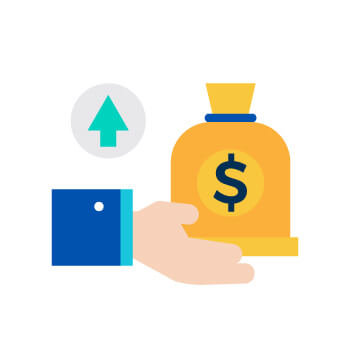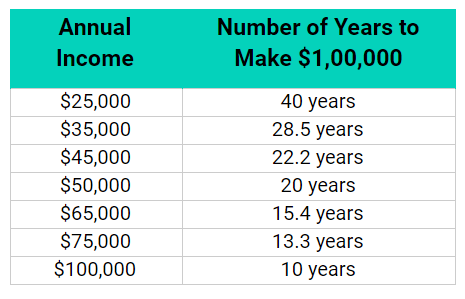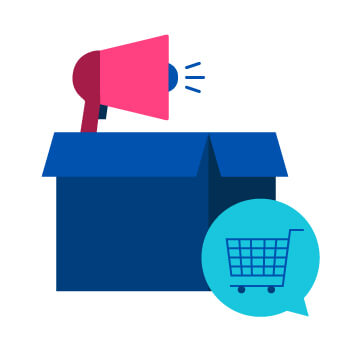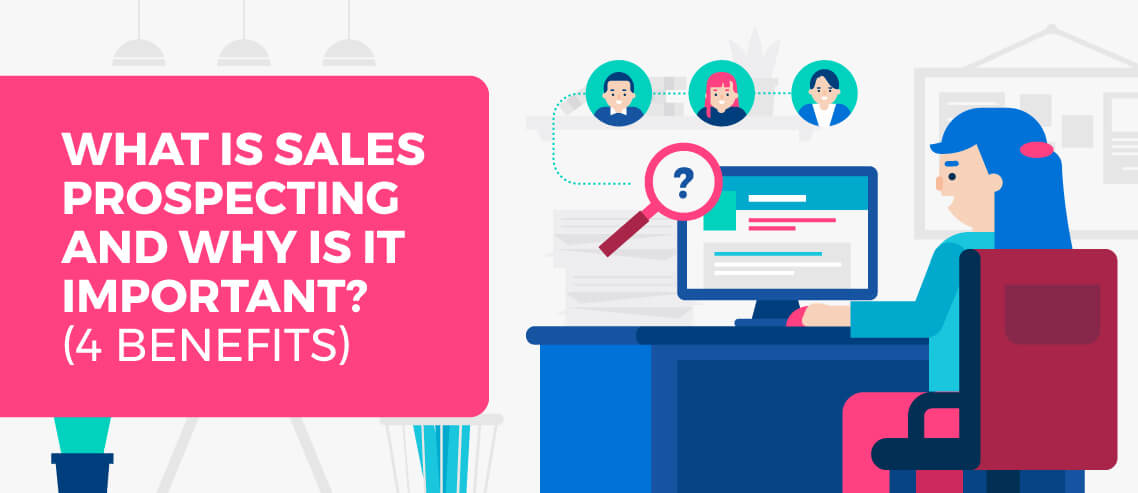4 Compelling Reasons to Consider a Career in Sales (& Know If You’d Be Good at It)

Contents
A career in sales isn’t everyone’s first choice. But if you’re looking for a career that gives you a good income and the chance to truly succeed, you owe it to yourself to consider it.
As a sales professional, you’ll enjoy personal satisfaction, growth, an unmatched income potential, and financial stability.
Here are 4 compelling reasons why now is the right time to seriously look at sales as your new career path.
1. A Career That is Always in Demand
When choosing or making a career change, you first want to make sure that it will be in demand, both now and in the future. So, is sales that career? Absolutely!
The products sold may change as technology continues to improve our lives, but the need to have someone sell them won’t. Let’s look at some facts…
Finding good salespeople is one of the biggest challenges for sales organizations. According to CSO Insights, only 16% of sales leaders are confident they have the talent they need to succeed in the future.
Human Resources Development Canada (HRDC) stated, “Even with Canada & the US in a recession, sales positions will continue to weather the effects better than most other careers. Sales and marketing workers tend not to lose or leave these jobs.”
As my mentor, John Noble always said, “If you are good in sales, you are never unemployed.”
2. Sales Professionals Earn Above-Average Income

Not only are qualified salespeople always in demand in the marketplace, regardless of economic conditions, but they earn an above-average income as well.
Salespeople consistently earn well above the average for their age group and education level. In fact, according to HRDC,
“Business service professionals, including those in marketing, earned well above average for Canadians. Sales, marketing and advertising manager earnings were among the highest for occupations in sales and service.”
According to the Bureau of Labor Statistics:
“Sales workers in the services and wholesale sectors will continue to be in demand because these occupations remain critical in building and maintaining customer bases for businesses.”
Taking this a step further, research shows that sales professions are also more upwardly mobile, with 85% of today’s CEO’s, Presidents, and senior executives coming from a background in sales.
The main reason is that people who earn their living in sales are truly compensated on their performance. They earn above-average incomes because they are in charge of their own destinies. When everyone else is locked in to a 1% or 2% cost-of-living wage increase, salespeople can go out and write their own paychecks!
Think about it. If you want to make a million dollars, what’s going to get you faster: a $35,000 a year, salary-only position or a performance-based career where you have the opportunity to earn $100,000 plus per year?

Simply put, in sales, you have the power to make it happen.
3. The Choice Is Yours: B2B vs B2C Sales
It’s important to note, not all salespeople earn an above-average income and not all salespeople have a corner office. Why? Sometimes it’s because they are just not in the right sales job.
It’s not enough to just be in sales. You have to be in a sales job that’s right for you!
When you start to investigate sales careers, you will often hear the terms B2B and B2C sales.
Business-to-business, or B2B sales, is simply defined as the process where one company exchanges a product or service with another company with the use of its sales representatives. Common examples include business equipment, accounting services, office supplies, and technology.
RELATED: The Modern Salesperson’s Guide to B2B Sales Prospecting
The alternative is B2C sales, where a company deals directly with the consumers through its sales representatives. Some examples are insurance and financial services, real estate, retail, and home improvement products and services.
Often, the goods being exchanged can be considered both B2B and B2C. For example, companies and consumers both purchase office supplies such as pens, pencils, and computers. However, a consumer normally buys the products online or by visiting a retail outlet, whereas a B2B sale tends to be made with the assistance of a sales representative at the customer’s place of business.
When looking at different sales career opportunities, it is important to remember that B2B sales are different from B2C sales in the following ways:
- B2B buyers are buying for their company, not their households, and therefore use different buying criteria for the same products.
- B2B buyers are spending the company’s money, not their own.
- More people are involved in a B2B buying decision than a B2C buying decision.
- The sales processes are different.
- There are more B2C prospects than there are business prospects, because there are more direct consumers out there than there are businesses.
- B2B sales reps tend to work during normal business hours, whereas B2C reps can often work during the evenings or weekends visiting people in their homes.
RELATED: 100+ Sales Statistics to Drive Your Strategy
If you take a moment to search for sales jobs online, you will see there are numerous opportunities in both B2B and B2C sales. One is not better than the other. You just need to know what works best for you.
4. A Good Product Doesn’t Sell Itself

You may be asking, with most companies making product information available to buyers with a simple internet search, are salespeople still needed these days? Hasn’t the internet made salespeople obsolete? Won’t a good product sell itself after buyers find it themselves online?
It’s true that consumers (both B2B and B2C) don’t engage with a salesperson until they’re about three-fourths of the way through the buyer’s journey. But as they wind up their research and prepare to make a buying decision, they often have questions, need guidance, or want to “scope out” the vendors they’re most interested in.
No amount of sales pages or case studies can replace this one-to-one experience.
Salespeople know their product inside and out. They understand the problems they can solve for customers. And they often do as much consulting as persuading in the sales process.
So while it’s true, consumers like to explore their options without the aid of a salesperson, products don’t sell themselves. And that’s especially true for expensive products and complicated solutions.
Can You Be a Successful Sales Person?
According to the research in the book How to Hire & Develop Your Next Top Performer by Herb Greenberg, Harold Weinstein and Patrick Sweeney, 1 in 4 people have an aptitude for sales.
How do you know if you could be that one out of four?
Generally, if you’ve got what it takes to succeed in sales, you:
- Like the idea of being your own boss
- Are willing to take control of your life
- Are excited at the idea of financial freedom
- Have the self-discipline to work on your own to achieve your goals
RELATED: Sales Skills Anyone Can Learn to Be a Great Salesperson
If you’re good with people, you’ve probably got what it takes to succeed in sales. Think about the activities you enjoy and the jobs you’ve succeed at in the past. If you’ve ever done teaching, coaching, or training, you’ve used skills that will help you succeed in sales.
Other skills you’ll need to succeed include:
- Creativity
- Confidence
- Persistence
- Strong work ethic
- Good listening skills
You need to believe in the product you sell. And you need to be passionate enough the solution it offers, that you’re excited about sharing it with other people
As Simon Sinek says, “People don’t buy what you sell, they buy what you believe.”
Having said that, sales is not for everyone. Again, according to the studies in How to Hire & Develop Your Next Top Performer, not everyone can sell, and some should even give up trying!
- 55% of people earning a living in sales should be doing something else
- 20 – 25% have what it takes, but should be selling something else
- 20% have what it takes AND are selling products best suited to their personality
So how do you know if you are the one?
A sales aptitude survey will tell you if you have the right personality and skills to be successful. Some can even suggest what type of selling would suit you best.
Just Google “free sales aptitude test” and you’ll see many choices to get you started.
Once you discover that you have the aptitude, then it’s just a matter of the right sales training and the right sales position and you’re on your way.
Sales Skills are Learned, Not Inherited

Successful salespeople are not born with the skills they need to succeed. Successful salespeople are trained for their trade, just like every other profession.
You can take the initiative and take some online sales training to get you started. O you could look for companies that hire “rookies” and train their new reps to use their own sales process.
In fact, one associate of mine just started her first sales job at one of those companies after I suggested she look at a career in sales when she set a new record for 50/50 ticket sales for a charity draw.
The point is, even if you don’t have any sales experience, you can still have a very rewarding career in sales.
Is a Career in Sales for You?
We all sell. Whether you are a recent graduate selling your skills on your resume, or a volunteer trying to raise funds for your favorite charity, or a parent trying to sell tonight’s dinner choice to your toddler, we all sell.
The real question is, can you make a living in sales? Now that you know all the facts, I think it is certainly worth investigating. Mind you, after 30 plus years in sales, some might say I am biased!
Aim higher!





